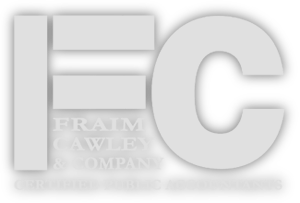“How much you want to make a bet I can throw a football over them mountains? Yeah. If coach would’ve put me in fourth quarter…we’d have been state champions, no doubt. No doubt in my mind. You better believe things would have been different. I’d have gone pro…in a heartbeat. I’d be making millions of dollars and…living in a…big ol’ mansion somewhere. You know, soaking it up in a hot tub with my soul mate.” – Uncle Rico, Napoleon Dynamite
A number of years ago I wrote a different article with this same title. In it, I discussed how a customer’s appreciation and favor can often be fleeting and the corresponding need to charge appropriately for your services right from the start – since people do have short memories. While not the focus of the article, I was largely critical of that forgetful and thoughtless “what have you done for me lately?” mindset and its shortsightedness.
But some things I’ve been seeing over the past few years have made me start thinking about the flip side of that and the instances where the “lately” question can be valid.
Specifically: how long is something you did relevant? How long is it expected to be appreciated or admired? And at what point does your current situation/behavior outstrip the good things you’ve done in the past?
This is a little bit nebulous, so let me give some examples. Imagine that a person did one of the following things:
- Lived abroad or in a major city
- Was valedictorian of their graduating class
- Went to a prestigious college or university
- Was an excellent athlete in high school or college
- Got featured on TV
- Won an award
- Dated a supermodel or celebrity
Those are all pretty cool accomplishments – some of them perhaps even extraordinary. But how long do they remain relevant? And how often does it make sense to bring them up? How much should they define the person that you are today?
There’s no formula, but to me there are two main factors:
- How remarkable was the accomplishment?
- How much time has passed since it happened?
If you graduated from Harvard last week, just broke up with Ana de Armas after dating for five years, or recently moved back from living in Japan for 20 years – I want to hear all of those stories. Those are all pretty major things which are relevant to the person you are right now.
But on the flip side, if you graduated from a middle-tier college 30 years ago, spent a few months in New York a decade ago, or went on one date with a local newscaster 20 years ago…how much of your persona should that define?
When I was in the third grade, I had the most points in my elementary school for the Accelerated Reader program. Should I put that on my CV? That sounds ridiculous, but that’s not too far off from what some people will do.
I know people who are talking about their athletic or scholastic achievements decades later. And not just in passing or in very occasional discussions with friends, but as a focal point of their marketing strategy and why you should hire them. This tactic is often ineffective – and with good reason. It’s too far removed from the person you are today and any metaphor/application for how those accomplishments can benefit potential customers becomes very loose.
In my office, we started calling this type of person an “Uncle Rico” – based on the Napoleon Dynamite character. Uncle Rico, despite being well into his 40s, still had his athletic ability in high school defining a major part of his personality and as the main focus of a large portion of his thoughts and conversations.
There has to be an expiration date. How long is winning your high school football championship relevant to who you are and what you can provide to your clients? It’s one thing when you’re 20 and trying to prove your grit and determination. At that point, you’re still early in your career and that’s all you have to point to. But when does it stop being relevant? When you’re 25? 30? 40?
At a certain point you also have to start asking why those achievements from years ago are the best things you can point to. In all of the years that have passed, why don’t you have any better and more recent accomplishments that you can highlight? Are you really going to be in your sixties and talking about how great you were at dunking a basketball 40 years earlier? And worse yet, still trying to use that as a justification for why clients should hire you?
That sort of incongruity is noticeable to our peers and the people to whom we are marketing. Even if they don’t say anything to us directly, they do notice and they do talk about it amongst themselves.
As with the rest of our marketing and branding, we as business owners need to take hard (and periodic) looks at how we are presenting ourselves. Does it match the person we are and the things we can do for our clients today? Or are we perhaps doing the equivalent of using a headshot from 30 years ago and passing it off as how we currently look?
(That last example is top of mind for me because I went pretty much bald and then shaved my head last year. But haven’t gotten around to getting new professional headshots done. The person you see in the email signature has markedly less hair than the one writing this article. So, for your viewing pleasure, here’s a photoshopped approximation.)

If we – in one way or another – are living in the past and dragging others along on that sad ride, that disconnect can be jarring. And eventually it just becomes kind of sad and pitiful. It is likely to cause us to lose out on potential customers and – depending on the severity of that disconnect – may make us look somewhat deluded and hurt our reputation in the process.
In a future article we’ll expand on this topic and discuss how we need to have this same balanced viewpoint for the things we do for clients and our perception of how long they should be grateful for the things we’ve done for them in the past.
Any accounting, business, or tax advice contained in this communication, including attachments and enclosures, is not intended as a thorough, in-depth analysis of specific issues, nor a substitute for a formal opinion, nor is it sufficient to avoid tax-related penalties.




